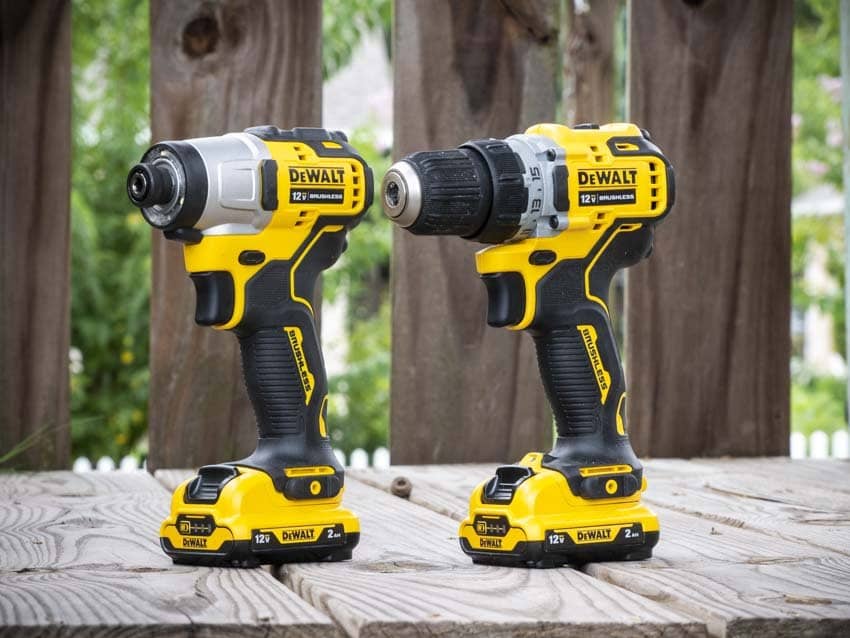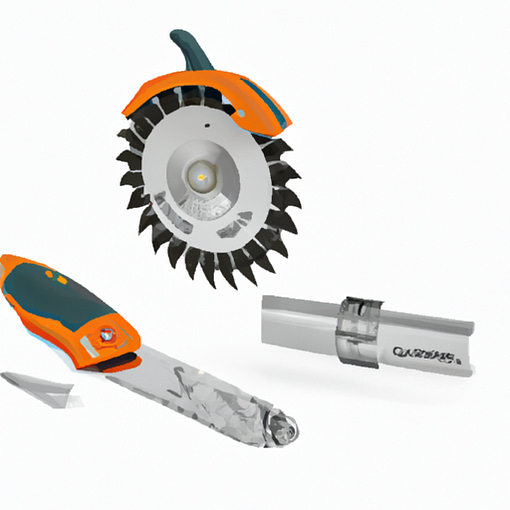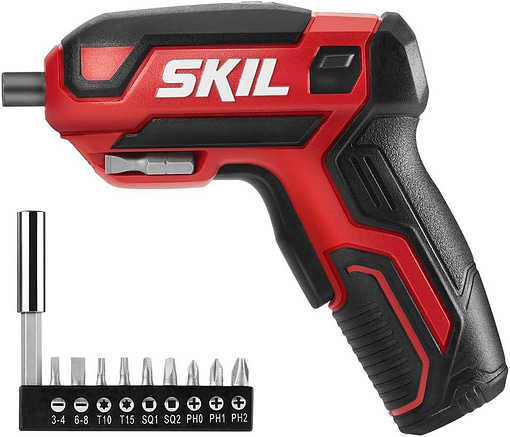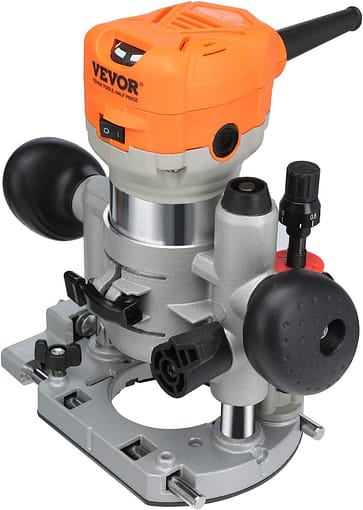If you’re a DIY enthusiast or someone who frequently takes on household projects, having the right tools is essential. When it comes to power screwdrivers or impact drivers, one crucial aspect to consider is the type of bits you need. These small, interchangeable attachments play a significant role in the tool’s functionality and efficiency. From Phillips and flathead to torx and hex, this article will explore the various types of bits you should have in your arsenal to tackle any project with ease. So, let’s dive in and discover the essential bits that will become your new best friends when operating a power screwdriver or impact driver.
1. Screwdriver Bits
1.1 Phillips Bits
Phillips bits are one of the most commonly used screwdriver bits. They feature a cross-shaped tip that fits into Phillips screws. These screws have a small indentation in the center, which allows the bit to engage securely. Phillips bits come in various sizes, typically indicated as PH0, PH1, PH2, PH3, with PH2 being the most commonly used size. They are ideal for general-purpose screwdriving tasks.
1.2 Slotted Bits
Slotted bits, also known as flathead bits, have a straight, single slot in the tip that matches the shape of slotted screws. These bits come in different sizes, indicated by the width of the slot. Slotted bits are often used for simple household tasks and industrial applications where slotted screws are prevalent.
1.3 Torx Bits
Torx bits are designed for use with Torx screws, which have a star-shaped recess. They provide excellent torque transfer and reduce the risk of cam-out, where the bit slips out of the screw head. Torx bits are available in sizes such as T5, T10, T15, T20, with larger sizes being suitable for heavy-duty applications.
1.4 Square Bits
Square bits, also called Robertson bits, have a square-shaped recess in the tip. They are primarily used with Robertson screws, which are popular in North America. Square bits offer high torque transfer and are less likely to strip the screw head. They come in various sizes, including SQ0, SQ1, SQ2, and SQ3.
1.5 Pozidriv Bits
Pozidriv bits are similar to Phillips bits but have additional small cross-like markings on the tip. These markings help reduce the chances of cam-out and provide improved gripping power. Pozidriv bits are commonly used in woodworking and other applications where high torque transfer is required.
1.6 Hex Bits
Hex bits, also known as Allen bits, feature a hexagonal-shaped recess on the tip. They are used with hex screws or bolts and are commonly found in furniture assembly, machinery, and automotive applications. Hex bits come in various sizes, such as 2mm, 3mm, 4mm, and 5mm, among others.
1.7 Robertson Bits
Robertson bits, as mentioned earlier, have a square-shaped recess on the tip. They are preferred for woodworking and construction applications due to their excellent torque transfer and reduced risk of cam-out. Robertson bits are available in sizes ranging from #0 to #3.
1.8 Tri-Wing Bits
Tri-Wing bits are characterized by three wings or lobes on the tip. They are commonly used for electronics, particularly in devices like smartphones, laptops, and gaming consoles. Tri-Wing bits come in different sizes, such as TW0, TW1, TW2, TW3, with TW2 being the most widely used.
1.9 Spanner Bits
Spanner bits, also called snake eyes bits, have two holes on the tip that resemble a spanner or snake eyes. They are commonly used in security applications, such as tamper-proof screws. Spanner bits are available in various sizes and are often used when additional security is required.
1.10 Torq-Set Bits
Torq-Set bits have a unique recess with four flanks that taper inward. They are commonly used in aerospace, automotive, and electronics industries. Torq-Set bits come in different sizes, indicated by a number system ranging from 1 to 8, with size 6 being the most commonly used.
2. Nut Driver Bits
2.1 Magnetic Nut Setters
Magnetic nut setters are designed to hold nuts securely in place while driving them with a power screwdriver or impact driver. They have a magnetic collar that ensures the nut remains attached to the bit during operation, preventing it from getting lost or dropped.
2.2 Hollow Shaft Nut Drivers
Hollow shaft nut drivers have a hollow shaft that allows them to slide over long bolts or threaded rods. They are commonly used in construction, HVAC, and electrical applications. Hollow shaft nut drivers provide increased reach and are suitable for fastening nuts in hard-to-reach areas.
2.3 Deep well Nut Drivers
Deep well nut drivers have an extended shaft that allows them to reach nuts in deep recesses or tight spaces. They are especially useful in automotive and machinery applications where there are obstacles that make it challenging to access the nuts. Deep well nut drivers ensure a secure grip and prevent the driver from slipping off.
2.4 Impact Nut Driver Sets
Impact nut driver sets are built to withstand high torque and heavy-duty applications. They are designed to be used with impact drivers, which deliver strong rotational force. Impact nut driver sets are usually made of high-strength steel and feature a ¼-inch hex shank for compatibility with various impact drivers.
2.5 Standard Nut Driver Sizes
Standard nut driver sizes are commonly used for a wide range of applications. These sizes include ¼-inch, 5/16-inch, 3/8-inch, 7/16-inch, ½-inch, and so on. They are available individually or as part of a set, providing versatility for different nut sizes encountered in various tasks.
2.6 Wing Nut Drivers
Wing nut drivers are designed specifically for wing nuts, which have two projecting tabs for easy hand-tightening. These drivers allow you to quickly screw or unscrew wing nuts without the need for additional tools. Wing nut drivers come in various sizes to accommodate different wing nut dimensions.
2.7 Hex Nut Drivers
Hex nut drivers, as the name suggests, are used for hexagonal nuts. They provide a precise fit, preventing the driver from slipping or rounding off the nut corners. Hex nut drivers are available in sizes such as ¼-inch, 5/16-inch, 3/8-inch, and 7/16-inch, among others.
2.8 Square Nut Drivers
Square nut drivers are designed for square nuts, which are commonly used in construction and woodworking applications. The drivers have a square-shaped recess that matches the nut’s shape, providing a secure grip and minimizing the likelihood of slipping or damaging the nut.
2.9 Torx Nut Drivers
Torx nut drivers are specifically designed for Torx nuts. They feature a star-shaped tip that matches the recess of Torx nuts, ensuring a snug fit and efficient torque transfer. Torx nut drivers come in sizes such as T10, T15, T20, and T25, among others.
2.10 Specialized Nut Drivers
Specialized nut drivers cater to specific nut shapes or unique applications. Some examples include spline nut drivers, which are used for spline nuts commonly found in automotive applications, and double-ended nut drivers, which provide two different nut sizes in one tool for added convenience.
3. Socket Bits
3.1 Impact Socket Sets
Impact socket sets are designed to withstand the high torque produced by impact drivers or power screwdrivers. They are usually made from high-strength materials and have a thicker wall construction to handle the increased stress. Impact socket sets come in various sizes to accommodate different bolt or nut sizes.
3.2 Standard Socket Sets
Standard socket sets are commonly used for a wide range of applications. They are suitable for use with hand ratchets and power screwdrivers alike. Standard socket sets come in different drive sizes, such as ¼-inch, 3/8-inch, and ½-inch, and include sockets in various metric and SAE sizes.
3.3 Deep Socket Sets
Deep socket sets have a longer socket depth, allowing them to reach nuts or bolts that are recessed or located in deep areas. They are particularly useful in automotive and machinery applications. Deep socket sets come in different drive sizes and metric or SAE sizes to accommodate various needs.
3.4 Shallow Socket Sets
Shallow socket sets have a shorter socket depth and are typically used for tasks where nuts or bolts are easily accessible. They are suitable for general-purpose use and offer a compact profile. Shallow socket sets are available in different drive sizes and metric or SAE sizes for versatility.
3.5 Hex Socket Sets
Hex socket sets, also known as Allen socket sets, are used with hexagonal bolts or screws. They provide a precise fit and help prevent stripping or rounding off the bolt heads. Hex socket sets come in various drive sizes and metric or SAE sizes, catering to different requirements.
3.6 Torx Socket Sets
Torx socket sets are designed for Torx screws, featuring a star-shaped recess. They provide excellent torque transfer and reduce the risk of cam-out. Torx socket sets come in different drive sizes and Torx sizes, allowing you to tackle various applications.
3.7 Spark Plug Socket Sets
Spark plug socket sets are specifically designed for the removal and installation of spark plugs. They feature a rubber insert or padding to protect the spark plug from damage during use. Spark plug socket sets come in different drive sizes and are typically compatible with various spark plug sizes.
3.8 Power Socket Bits
Power socket bits, also known as power bits, are designed to be used with power screwdrivers or impact drivers. They have a ¼-inch hex shank that allows for quick and easy bit changes. Power socket bits come in a variety of sizes and are typically made of durable materials to withstand high torque.
3.9 Socket Adapters
Socket adapters allow you to convert a socket wrench or ratchet into a different drive size. For example, a socket adapter can convert a ¼-inch drive to a 3/8-inch drive or vice versa. Socket adapters provide flexibility and enable the use of sockets with different drive sizes.
3.10 Universal Socket Sets
Universal socket sets, also known as adjustable or multi-size socket sets, feature a unique design that allows them to fit a wide range of fastener shapes and sizes, including square, hex, Torx, and even damaged or rounded-off bolts. Universal socket sets eliminate the need for multiple individual sockets and provide convenience for various tasks.
4. Drill Bits
4.1 Twist Drill Bits
Twist drill bits are the most common type of drill bits used in woodworking, metalworking, and general-purpose drilling tasks. They have a helical shape with flutes that help remove material while drilling. Twist drill bits come in various sizes, ranging from small diameters suitable for delicate tasks to larger diameters for heavy-duty drilling.
4.2 Masonry Drill Bits
Masonry drill bits are designed for drilling into materials such as concrete, brick, stone, and tile. They have a carbide tip for added durability and improved performance in hard materials. Masonry drill bits often have a special flute design that helps to clear the debris and reduce heat build-up during drilling.
4.3 Brad Point Drill Bits
Brad point drill bits, also known as dowel drill bits, have a sharp, centered tip that helps to prevent wandering or slipping when drilling into wood. They are commonly used for woodworking tasks that require precise and clean holes, such as installing dowels or drilling holes for hinges.
4.4 Spade Drill Bits
Spade drill bits, also referred to as paddle bits, have a flat, paddle-like shape with cutting edges on the sides. They are commonly used for drilling large holes in wood, such as for pipe or cable installations. Spade drill bits are available in various sizes, typically ranging from ¼ inch to 1½ inches in diameter.
4.5 Forstner Drill Bits
Forstner drill bits are ideal for drilling flat-bottomed holes with smooth sides in wood. They have a cylindrical shape with a center point and circular cutting edges that shear away the material. Forstner drill bits are commonly used when a clean and precise hole is required, such as for woodworking projects.
4.6 Countersink Drill Bits
Countersink drill bits are used to create a conical-shaped recess in a material, allowing the screw head to sit flush with or below the surface. They have a drill bit and a built-in countersink or pilot that guides the drilling and countersink operation. Countersink drill bits are commonly used in woodworking and metalworking applications.
4.7 Step Drill Bits
Step drill bits, also known as cone drill bits or ladder drill bits, have a stepped design with multiple cutting edges. They allow you to drill various hole sizes with a single bit by gradually increasing the diameter. Step drill bits are commonly used for sheet metal, plastic, and electrical installations.
4.8 Hole Saw Drill Bits
Hole saw drill bits, as the name implies, are used for creating circular holes in materials like wood, plastic, and metal. They consist of a saw blade with teeth and a pilot drill bit that centers the hole saw on the material. Hole saw drill bits are available in various sizes to accommodate different hole diameters.
4.9 Auger Drill Bits
Auger drill bits are designed for drilling deep holes in wood or similar materials. They have a screw-like shape with a central point that pulls the bit into the material, removing the chips as it progresses. Auger drill bits are commonly used in carpentry, framing, and drilling large-diameter holes.
4.10 Multifunction Drill Bits
Multifunction drill bits combine various functions into a single bit, allowing you to perform drilling, countersinking, and/or counterboring operations with one tool. They save time and reduce the need for multiple tools or bit changes during a task. Multifunction drill bits are available in different sizes and are suitable for various materials and applications.
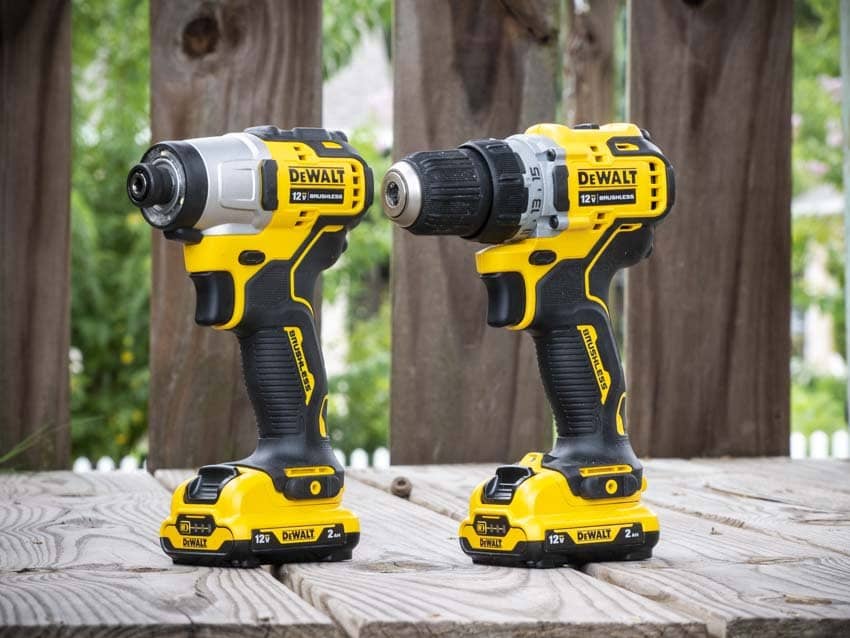
5. Impact Driver Bits
5.1 Standard Phillips Bits
Standard Phillips bits, as mentioned earlier, are used with Phillips screws that feature a cross-shaped recess. These bits are engineered to withstand the high torque produced by impact drivers. Standard Phillips bits come in various sizes and are commonly used for general-purpose fastening tasks.
5.2 Square Bits
Square bits, also referred to as Robertson bits, are used for square-shaped recessed screws. They offer excellent torque transfer and prevent cam-out. Square bits for impact drivers are built to withstand the high torque and provide secure fastening. They come in different sizes to accommodate various square screws.
5.3 Torx Bits
Torx bits for impact drivers are designed to work with Torx screws, which have a star-shaped recess. They ensure precise engagement and reduce the risk of stripping or cam-out. Torx bits provide efficient torque transfer and are commonly used in automotive, machinery, and electronics applications.
5.4 Hex Bits
Hex bits are used with hexagonal screws or bolts. They provide a secure fit and reliable torque transmission. Hex bits for impact drivers are designed to withstand the high rotational forces and deliver consistent performance. They come in various sizes to accommodate different hex screw dimensions.
5.5 Nut Driver Bits
Nut driver bits for impact drivers are specifically designed for driving nuts with the convenience of a power tool. They offer quick attachment and detachment, ensuring fast and efficient nut fastening. Nut driver bits come in various sizes to match different nut dimensions.
5.6 Socket Bits
Socket bits for impact drivers are similar to socket bits for hand ratchets, but they are manufactured to withstand the high rotational forces produced by impact drivers. They provide secure and reliable socket connections, enabling efficient fastening and removal of bolts or nuts.
5.7 Spade Bits
Spade bits for impact drivers are used for drilling large-diameter flat-bottomed holes in wood or other soft materials. They have cutting edges that quickly remove material during drilling. Spade bits for impact drivers provide fast and efficient hole drilling, making them ideal for construction, woodworking, and electrical applications.
5.8 Adapter Bits
Adapter bits allow you to convert the drive size of your impact driver, enabling compatibility with different bits or sockets. They come in various configurations, such as hex to square, square to hex, or even interlocking adapters. Adapter bits expand the versatility of your impact driver and allow you to tackle a broader range of tasks.
5.9 Power Bits
Power bits for impact drivers are designed to handle high torque applications. They are typically longer and stronger than regular bits, allowing them to withstand the increased stress. Power bits are available in various types, including Phillips, Torx, square, and hex, providing versatility for impact driver use.
5.10 Specialty Impact Driver Bits
Specialty impact driver bits cater to specific applications or unique fasteners. They include bits such as clutch bits, which are used for driving screws with a clutch head, and impact-rated screw-holding bits that securely hold screws in place while driving. Specialty impact driver bits expand the capabilities of your impact driver and enable you to handle specialized tasks.
6. Specialty Bits
6.1 Security Bits
Security bits are designed for tamper-resistant screws, which have unique indentations or patterns to deter unauthorized removal. They include types such as spanner bits, star bits, clutch bits, and hex bits with a pin in the center. Security bits are commonly used in applications where additional security measures are required.
6.2 Tamper-Proof Bits
Tamper-proof bits are similar to security bits and are used with tamper-resistant fasteners. They have specialized shapes or grooves that match the recess of tamper-proof screws, ensuring a secure fit. Tamper-proof bits are commonly used in industrial, automotive, and electronic applications where tamper-resistant fasteners are employed.
6.3 Clutch Bits
Clutch bits, as mentioned earlier, are designed for screws with a clutch head, which consists of two recesses that resemble a bowtie or cloverleaf shape. Clutch bits engage securely with the recesses, providing efficient torque transfer and preventing unauthorized removal of the screws.
6.4 Double-Ended Bits
Double-ended bits offer two different bit tips on opposite ends, allowing you to switch between different screw types or sizes quickly. They provide versatility and convenience by eliminating the need for multiple individual bits. Double-ended bits are available in various combinations, such as Phillips/Slotted or Torx/Hex.
6.5 Insert Bits
Insert bits, also known as bit holders, are designed for use in bit holders or extensions. They have a hexagonal-shaped base that fits into the bit holder, ensuring a secure connection. Insert bits come in various lengths and bit type configurations, allowing you to customize your bit holder setup.
6.6 Screw-Holding Bits
Screw-holding bits have a magnetized tip or a spring-loaded mechanism that holds screws securely during driving. They provide convenience by preventing the screws from falling off the bit or getting lost. Screw-holding bits are commonly used in applications where one-handed operation is required or when working in tight spaces.
6.7 Wing-Grip Bits
Wing-grip bits, also referred to as thumb nuts bits, are designed for wing nuts that feature two projecting tabs for easy hand-tightening. These bits provide a secure grip on the wing nuts, allowing for quick and efficient installation or removal without the need for additional tools.
6.8 Hex End Bits
Hex end bits, as the name suggests, have a hexagonal-shaped tip on one end and a different bit type on the other end. They provide versatility by offering a choice between hex or the other bit type, such as Phillips, Torx, or square. Hex end bits are commonly used in construction, automotive, and machinery applications.
6.9 Magnetic Bits
Magnetic bits have a magnetized tip that holds screws or other small metal fasteners securely. The magnetic attraction prevents the screws from falling off the bit and makes it easier to drive them into place. Magnetic bits provide convenience and save time during fastening tasks, especially in hard-to-reach areas.
6.10 Quick-Change Bits
Quick-change bits feature a hexagonal-shaped shank that allows for rapid bit changes without the need for tools. They have a spring-loaded ball bearing or retention mechanism that securely holds the bit in place during operation. Quick-change bits provide convenience and efficiency by enabling hassle-free bit swapping.
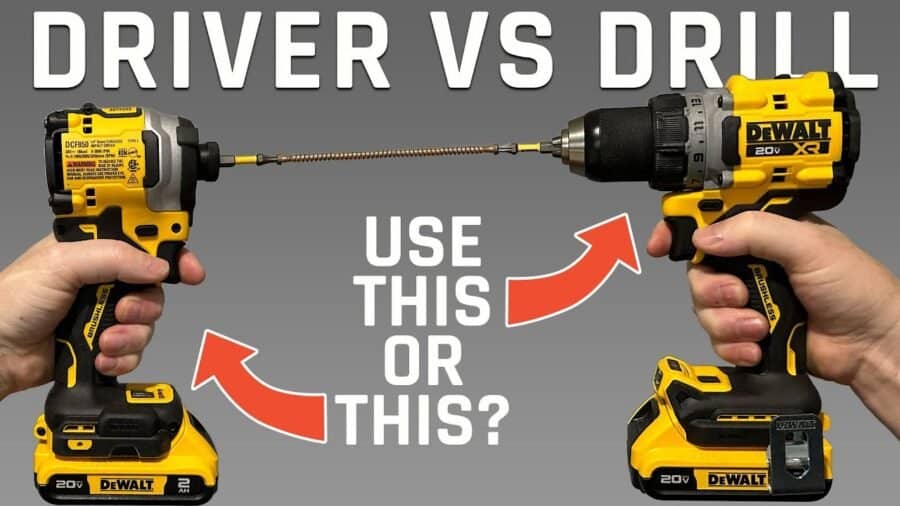
7. Accessories
7.1 Bit Holders
Bit holders are used to securely hold screwdriver bits, insert bits, or power bits. They often have a magnetic tip or a mechanism that locks the bit in place during use. Bit holders come in various lengths and configurations, including adjustable or flexible holders for enhanced versatility.
7.2 Bit Extensions
Bit extensions provide additional reach when using screwdriver bits or insert bits. They come in different lengths and are compatible with various bit types. Bit extensions are useful when working in tight or hard-to-reach spaces, allowing for extended reach without compromising torque transfer.
7.3 Magnetic Screw Guide
A magnetic screw guide is a handy accessory that holds screws securely in place on the bit, allowing for easy one-handed operation. It typically features a magnetized sleeve that slides over the bit, maintaining a secure grip on the screw while driving. Magnetic screw guides save time and make fastening tasks more efficient.
7.4 Bit Sets
Bit sets are collections of various screwdriver bits or insert bits, providing a comprehensive selection for different fastening tasks. They come in different sizes and configurations, including sets specifically designed for power screwdrivers or impact drivers. Bit sets ensure you have the right bit for any job.
7.5 Storage Cases
Storage cases are essential for organizing and protecting your bits and accessories. They come in various sizes and designs, including hard cases, soft cases, or bit organizer trays. Storage cases keep your bits secure, prevent loss or damage, and make it easy to transport or store your bits.
7.6 Bit Sharpeners
Bit sharpeners are tools used to restore the sharpness of worn-out drill bits or other cutting tools. They feature abrasive surfaces or grinding wheels that remove material from the bit’s cutting edge, ensuring optimal performance. Bit sharpeners extend the lifespan of your bits and save money on replacements.
7.7 Bit Organizer
A bit organizer is a storage solution specifically designed to keep your bits neatly organized and easily accessible. It typically consists of compartments or holders that hold individual bits, allowing you to sort and categorize them. Bit organizers help maintain order in your tool box or workbench and prevent loss or misplacement of bits.
7.8 Bit Adapters
Bit adapters are used to convert one type of bit or drive to another. They allow you to use bits or accessories with different shank sizes or types on your power screwdriver or impact driver. Bit adapters provide flexibility and expand the range of compatible bits for your tool.
7.9 Bit Retainers
Bit retainers, also known as bit holders or sleeves, are used to securely hold screwdriver bits, insert bits, or power bits in place during operation. They often have a locking mechanism that ensures the bit remains attached to the tool. Bit retainers prevent bit slippage or detachment, providing a secure and reliable connection.
7.10 Bit Protectors
Bit protectors are accessories designed to cover the tips of screwdriver bits or insert bits to prevent damage, wear, or unintended contact during storage or transportation. They help maintain the integrity of the bit’s tip and prolong its lifespan. Bit protectors are particularly useful for fragile or specialized bits.
